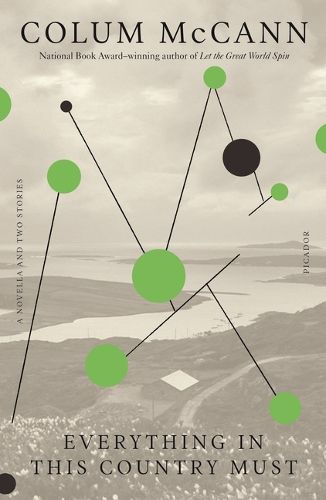Readings Newsletter
Become a Readings Member to make your shopping experience even easier.
Sign in or sign up for free!
You’re not far away from qualifying for FREE standard shipping within Australia
You’ve qualified for FREE standard shipping within Australia
The cart is loading…






An early collection by the National Book Award-winning author of Let the Great World Spin and Apeirogon
This devastating early collection from Colum McCann finds the National Book Award-winning author of Let the Great World Spin already exploring one of his most enduring themes: the reverberations of political violence in individual lives.
The setting is McCann's native Ireland in the time of the Troubles, a conflict that manifests both brutally and subtly in everyday life. In the title story, a teenage girl struggles to reconcile her gratitude to the British soldiers who saved the family's horse with her Catholic upbringing. "Wood," which first appeared in The New Yorker, depicts a boy attempting to help the Protestants under the nose of his blind, disapproving father. And in solidarity with his uncle, an imprisoned confederate of Bobby Sands, the teenage narrator of "Hunger Strike" mounts a resistance of his own.
Each story displays McCann's unique ability to capture the costs, emotional and psychological as well as physical, of violence, and reminds readers why he's been lauded as "one of the most compassionate writers alive" (Air Mail).
$9.00 standard shipping within Australia
FREE standard shipping within Australia for orders over $100.00
Express & International shipping calculated at checkout
An early collection by the National Book Award-winning author of Let the Great World Spin and Apeirogon
This devastating early collection from Colum McCann finds the National Book Award-winning author of Let the Great World Spin already exploring one of his most enduring themes: the reverberations of political violence in individual lives.
The setting is McCann's native Ireland in the time of the Troubles, a conflict that manifests both brutally and subtly in everyday life. In the title story, a teenage girl struggles to reconcile her gratitude to the British soldiers who saved the family's horse with her Catholic upbringing. "Wood," which first appeared in The New Yorker, depicts a boy attempting to help the Protestants under the nose of his blind, disapproving father. And in solidarity with his uncle, an imprisoned confederate of Bobby Sands, the teenage narrator of "Hunger Strike" mounts a resistance of his own.
Each story displays McCann's unique ability to capture the costs, emotional and psychological as well as physical, of violence, and reminds readers why he's been lauded as "one of the most compassionate writers alive" (Air Mail).